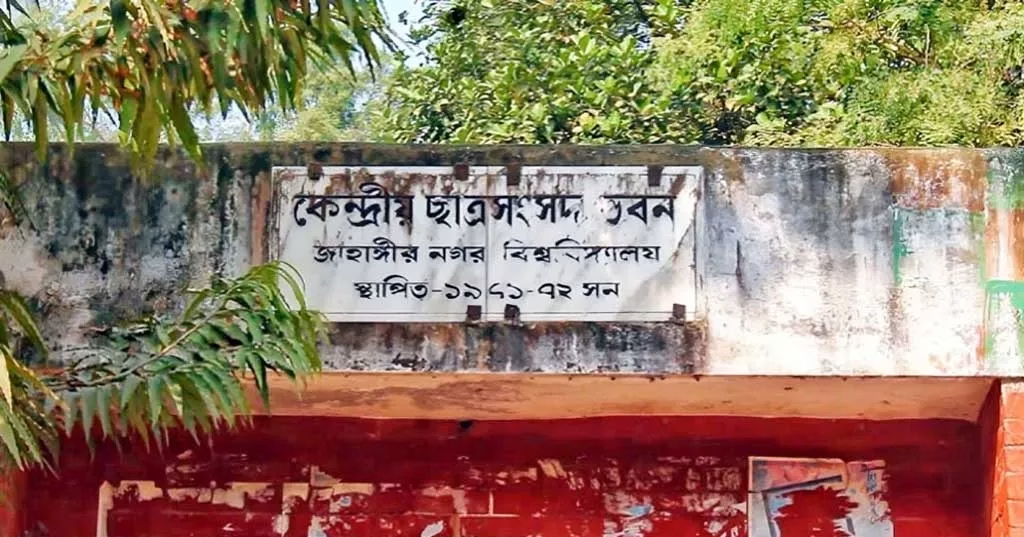The upcoming Jahangirnagar University Central Student Union (JUCSU) elections have witnessed a significant decrease in female participation, with many female students citing multiple factors contributing to their reluctance. While women make up half of the electorate, challenges such as cyberbullying, social harassment, character assassination, and fears of image manipulation by AI have deterred many from running for office.
Additionally, discouragement from families and societal pressures, alongside unequal opportunities, a male-dominated political culture, and an unsupportive environment, are being identified as major deterrents, reports UNB.
Interviews with female students revealed that the main reason behind the reluctance to participate is the lack of clear understanding of the electoral process, especially after 33 years of JUCSU elections. The participation of active political organizations has also led many to see it as a political platform, making potential candidates hesitant to engage.
A significant reason for the lack of female candidates is the fear of cyberbullying and social harassment. Concerns about character assassination, rumors, and the distortion of images (using AI tools) are keeping many women away from the elections.
Furthermore, objections from family members, social pressures, and a lack of equal opportunities are preventing women from running for office. Several female students also expressed that the current environment is not conducive to their participation.
Another group of female students mentioned that, despite the rise of female leadership on campuses after the July movement, these leaders have also been subjected to cyberbullying and social harassment. Consequently, some women believe that joining a specific panel for the JUCSU elections is not a feasible option.
Malihah Namlah, a candidate for Assistant General Secretary (female) from the ‘Students Unity Forum’ panel, shared, “The primary reason why women aren’t running is cyberbullying and harassment. The lack of equal opportunities is also a major factor. Personal attacks, propaganda, and the fear of character assassination are ever-present.
Additionally, there is an aversion towards student politics, and families and relatives also discourage us from participating.”
She added, “If we can raise social awareness and organize seminars or campaigns, we could encourage more women to participate. Holding cyberbullies accountable through legal action and ensuring equal opportunities will significantly increase female involvement.”
Ayesha Siddika Meghla, a candidate for Assistant General Secretary (female) from the ‘Integrated Student Alliance’ panel, said, “The primary reason for the lack of female leadership is the societal structure. Whenever a woman aspires to lead, she faces cyberbullying, tagging, and verbal abuse. If she is religious, she is labeled as part of the ‘Student Organization,’ and if she is progressive, she is mocked for her views.”
She further explained, “When a woman wants to step into leadership, her family fears the indecency she may face. This fear, more than anything else, prevents women with potential and desire from coming forward.”
Due to the limited female participation in the JAKSU elections, there has been a shortage of candidates for both the central and hall-based councils. In many female halls, multiple positions remain unfilled due to a lack of female candidates.
Jahangirnagar University has 21 residential halls, and while male halls have multiple nominations for almost all positions, the situation is markedly different for female halls. In some halls, only 6 to 11 nominations have been received for several vacant positions. Of the total 813 nomination forms distributed for the JUCSU elections, only 740 were submitted. Out of these, 273 were submitted for the central council and 467 for the hall-based elections.
The Election Commission reported that 299 nomination forms were distributed for the central council, of which 273 were returned. For hall-based elections, 514 forms were distributed, with 467 submissions received.
In female halls, the nominations for various halls were as follows: Jahanara Imam Hall received 16 nominations, Preetilata Hall received 13, and Begum Khaleda Zia Hall received 11. The lowest number of nominations came from Hall No. 13 (formerly Sheikh Hasina Hall) and Nawab Foyzunnessa Hall, with only 6 nominations from each.
The low participation of women candidates in the JUCSU elections has sparked mixed reactions on campus. Stakeholders argue that the election environment is not conducive for female students, and that cyberbullying, social harassment, and constant verbal abuse are pushing women away from student politics and elections.
Teachers assert that structural changes, family and societal discouragement, and a lack of awareness about the JUCSU elections have contributed to the disinterest among female students.
Regarding this, the Chief Election Commissioner of JUCSU, Professor Dr. Mohammad Moniruzzaman, said , “We have not received any complaints regarding harassment or cyberbullying from female students. If such complaints arise, we will conduct an investigation and take necessary action.”
He further emphasized, “After 33 years, we are organizing the JUCSU elections. Everyone must be given the opportunity to participate. No one should be kept away from the elections due to harassment or cyberbullying.


